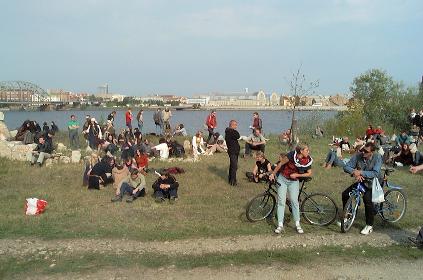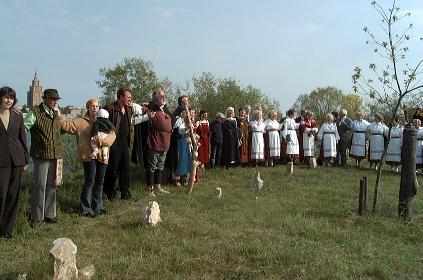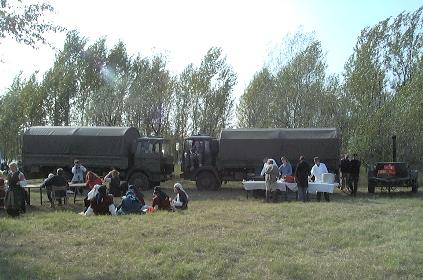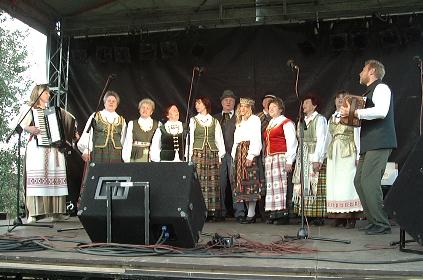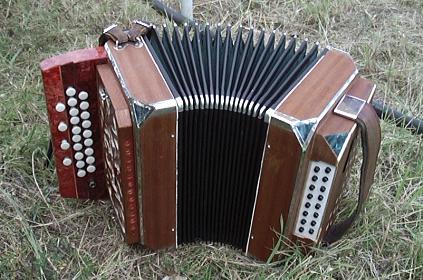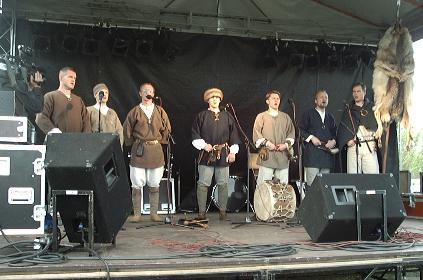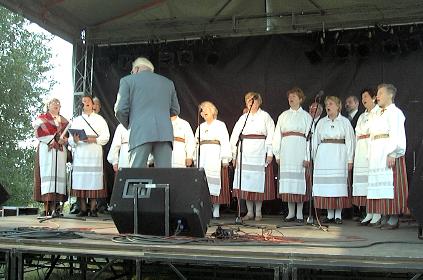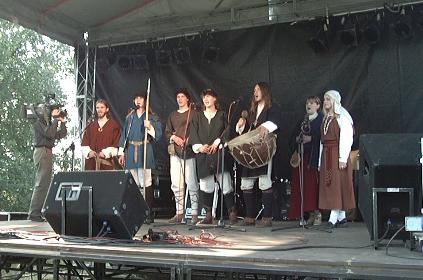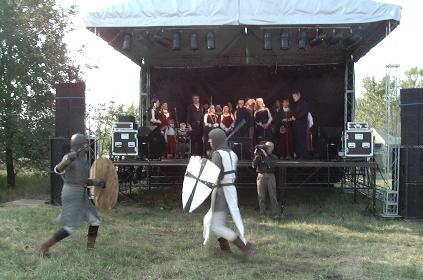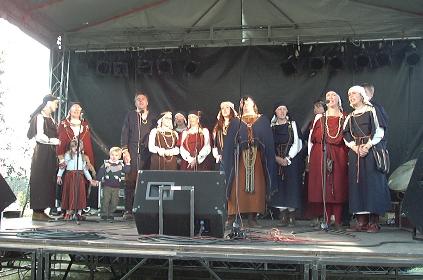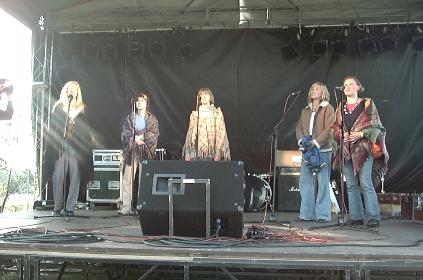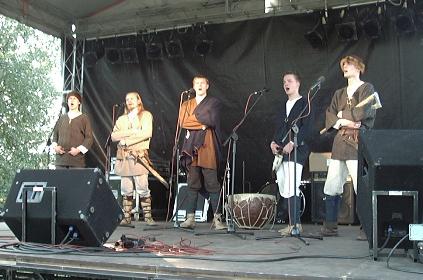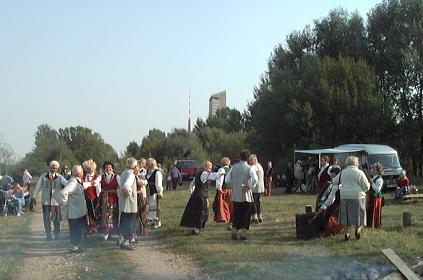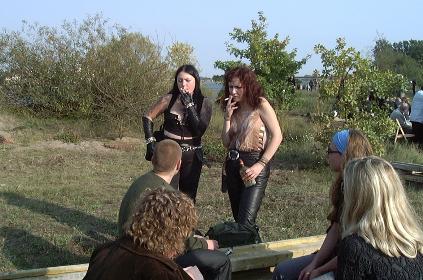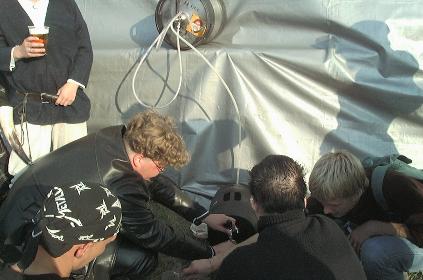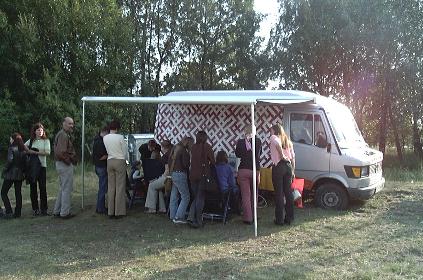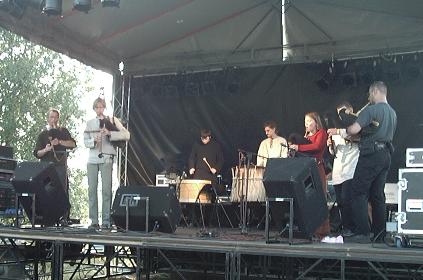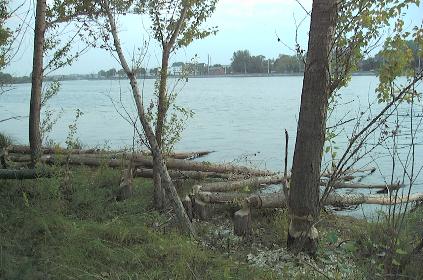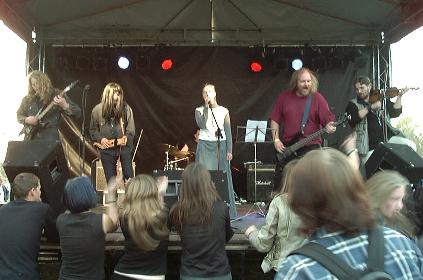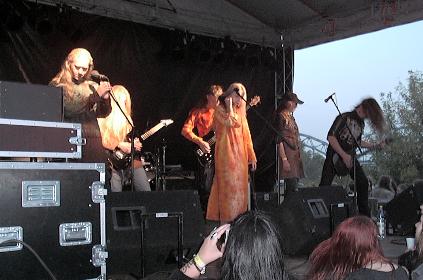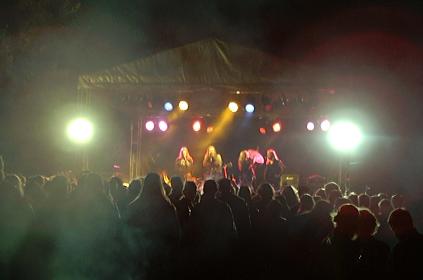|
|
|
|
|
Folklore groups
Instruments Activities About us |
|
|
|
Calendar
Regular Reportings Education |
|
|
|
Support
Fonts Mpeg3 Links Addresses Statistics Guestbook |
|
|
|
You are visitor of folklora.lt and visitor of this page. |
|
Baltic autumn solstice fest "The Baltic Sun",
The morning of September 21 has pleased Rigans with a warm sun of Indian
summer. But the greatest pleasure it has afforded to organizers, participants
and spectators of the fest The Baltic Sun: from the both sides -
the river Daugava, in the middle - a meadow of the Hares' island,
and above - the sun.
The fest began by orations and joint singing near a symbolical
"boat", created from stones. Speeches was made by Dainis Stalts, the minister
of defense Girts Kristovskis and representatives of the Lithuanian embassy
and the Estonian society. They spoke, basically, about the positive result
in yesterday's referendum about joining the European Union. As a
third of citizens has voted against joining, such overdone and biassed
politicalisation of speeches looked inappropriate.
The visit of the minister of defense was not casual - army of Latvia has helped
to organizers of the fest by different sort of a support: from granting army
tents for changing clothes up to feeding of participants on a field kitchen.
After solemn opening the action has moved to the stage. By first performed
representatives of Dinaburg Lithuanian society. They sang folk songs and
romances, both with and without accompaniment.
With the group has arrived also a squeeze-box player from Lithuanian city Zarasai,
who recently started to make squeeze-boxes himself - we shall tell honourly,
of very original construction, from details of old squeeze-boxes of other types.
Vilki sang soldiers' songs. Though on the stage there was no the leader,
the group sang as confidently, as always.
The chorus of the Riga Estonian society was a real chorus: with a conductor, a choral
manner of singing and a choral repertoir. And, though they not met to a
folklore concert, clear, pleasant singing and quiet, solar weather
made this discrepancy almost imperceptible.
Trejasmens sang rather weakly, was felt an uncertainty.
It is interesting, that, as against other ensembles of soldier's songs,
in Trejasmens sing some women too.
On the last song Skandinieki have joined Trejasmens,
and in accompaniment of Livonian song a struggle of two knights was
shown.
Skandinieki have sung one strong, loud song from every
region of Latvia.
Vilcenes were without traditional clothes.
Sounded briskly, unfortunately - with false notes at times.
Vilkači have confidently performed soldiers' and joint-work's songs.
Ensemble looks as a strong and perspective collective, though it has not yet
grown until independent creation of the repertoir.
As some participants of group Kala jeng were late, the concert was
to be interrupted. During the break roundels and dancings were played,
knights' battles were showed, a contest in a bow shooting were carried out,
and, also, participants were treated with some beer.
In one hour the concert has restarted - Auļi appeared on the scene.
Rattle of drums and humming of bagpipes was same loud as in
Vendene, but
musical qualitaty looked even progressed: pipes on two voices,
bagpipes' groups' call-overs, solos of drummers.
Kala jeng sang Livonian songs. This one differed from other performances
by a skilful playing of an Estonian violinist, participant of ensemble Raud ants.
After a small break began the second part - a concert of pagan metal.
By first performed an Estonian ensemble Raud ants: the "main staff"
of metallists (electroguitar, electrical bass guitar, drums), singer,
psalterist and already mentioned violinist. Basically the songs was
arrangements of folk songs, in which a melodical maiden singing was
supplemented by series of men's howling. The group looks like "glued", i.e.,
it was not as a single unit, but as separate, combined together musicians
(the violinist played, but was not shown really; the girl sang mediocrely;
the guitar player howled opportunely and inopportunely).
The second was Lithuanian Žalvarinis; except the "main staff"
there were three singers - one lad (which played bagpipes too) and
two girls. The ensemble, as opposed to the previous, was a real
ensemble: everyone had a place and a role. Repertoir - Lithuanian
folk songs, singed in traditional vocal manner, but with metallic
accompaniment; as against other groups, the singing was melodious and
nice. Besides collective was positivly disposed - conversation with
spectators was hearty, with a pleasant smile in voices.
Estonian Metsatoll consist of four fellows - the "main staff" and
a musician who plays folk instruments (bagpipe, psaltery, guimbarde, pipe etc.),
a second electroguitar and sings a second voice (first voice sings
the guitar player). Sounded interesting, was felt a creative approach,
however, plans was bigger than possibilties, the singing sometimes was false.
It is pleasant, that the musicians did not yelled, but only cried out something from
time to time.
Lithuanian Obtest were real yellers. They have fully made the image
of "little monsters", especially the singer, who fidgeted for a whole time,
raised the foot of the microphone, made awful physiognomies and, certainly,
howled with all strength. In the program there was nothing traditional -
neither melodies, nor tools, only in lyrics there was a paganic orientation
("ancient gods wish" etc.).
The concert has finished a local ensemble Skyforger, which has conceived
the performance as a presentation of the new album Thunderforge; therefore
the majority of songs there were from this album, i.e. - arrangements of folk
songs. In the staff of group - a singer/guitar player, joined in singing
bass guitar player, a guitar player and a drummer. Chaps played well, even
very well. Unfortunately, it is not possible to tell something good about the singing
- basically it was yelling, howling and hissing, but in scarce cases, when the singer
started to sing, we found out that both the voice and the ear are mediocre.
During the performance suddenly began to lighten and to rain, that was very
in time because of thundered subjects of the songs; in my opinion, it was
by coincidence, though, who knows, maybe really they bewitched it?
We noticed an interesting tendency: the better participants were able to sing,
the less they yelled and howled. Maybe a real reason of yelling is wishing
to hide vocal lacks? Or, on the contrary - people, caring about her voice,
don't want to torment it by an unnatural howling?
Article: Ansis Ataols Bērziņš, 24 September 2003 |
|
Questions, comments and suggestions are welcome to ansis_N@N_folklora.lt This page is created with support of SFL, Latnet and Lanet. |
|
03 September 2018 |
